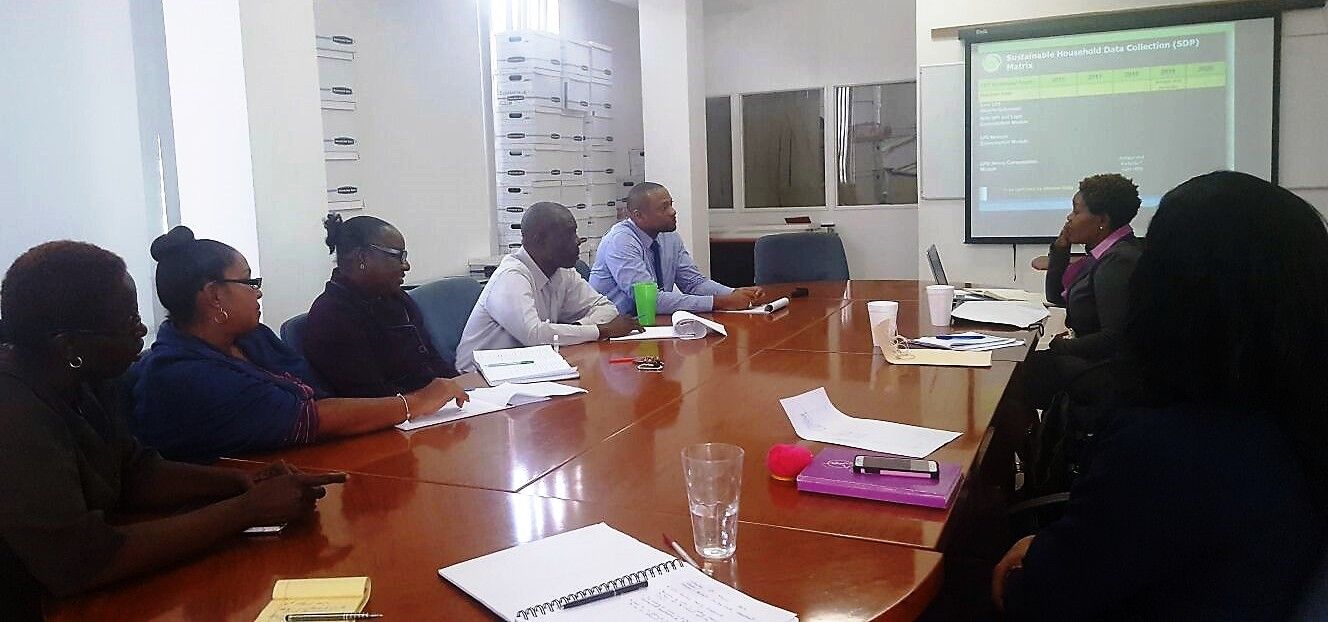Country Needs Assessment Missions held in Nine OECS Member States
OECS Statistical Services Unit lays groundwork for Country Poverty Assessments
In preparation for the implementation of Country Poverty Assessments (CPAs) in Member States, the Organisation of Eastern Caribbean States’ (OECS) Commission conducted nine Country Needs Assessment (CNA) missions to determine eligible areas for targeted support. The missions were carried out over a six month period, from October 3rd 2016 to March 30th 2017, with funding from the Caribbean Development Bank (CDB) under its Enhanced Country Poverty Assessment (CPA) Project.
The OECS Statistical Services Unit (SSU) drove the initiative, as the entity responsible for supporting Member States with the implementation of the Enhanced CPA Project, and held consultations with key national stakeholders in all OECS Member States.
Missions were scheduled in collaboration with a respective focal point in each Member State, who served as a liaison between the Commission and other key national stakeholders. Each visit involved consultations and discussions with representatives of implementing agencies, such as the national statistics offices; the Ministry with responsibility for Social Protection/Development; the Ministry of Finance; and interest groups, such as those for persons living with disabilities.
The discussions at the consultations focused, inter alia, on the following topics:
- the multidimensional approach to measuring poverty;
- constituting a National Assessment Team (NAT), which is a mechanism recommended to ensure that the CPA is inclusive, institutionalised and nationally-driven;
- modernising the data collection process. The Commission is encouraging Member States to embrace technology and automate the data collection process. The World Bank is also providing support for this initiative;
- utilising lessons learnt in the implementation of past CPAs, including the uses of the CPA results to guide evidence-based policy decisions and national development plans;
- designing an all-inclusive communication strategy to raise awareness of the CPAs; and
- Member States also highlighted areas where technical, financial and advocacy support will be needed.
Most of the nine Member States have assigned key roles to agencies who will lead the four main components of the Country Poverty Assessments, as outlined under the CDB model. These components are:
- the Survey of Living Conditions and Household Budget Survey (SLC/HBS);
- Macro Socio Economic Assessment (MSEA);
- the Participatory Assessment (PPA); and
- the Institutional Assessment (IA).
To date, Anguilla and the British Virgin Islands have already constituted their National Assessment Teams. Plans are underway for remaining Member States, which are at varying stages of gaining approval from their respective governments.
Outputs of the CNA missions include detailed reports that will assist each Member State to effectively implement the Enhanced CPA Project. Member States will also be facilitated with technical support plans developed by the OECS Commission.






